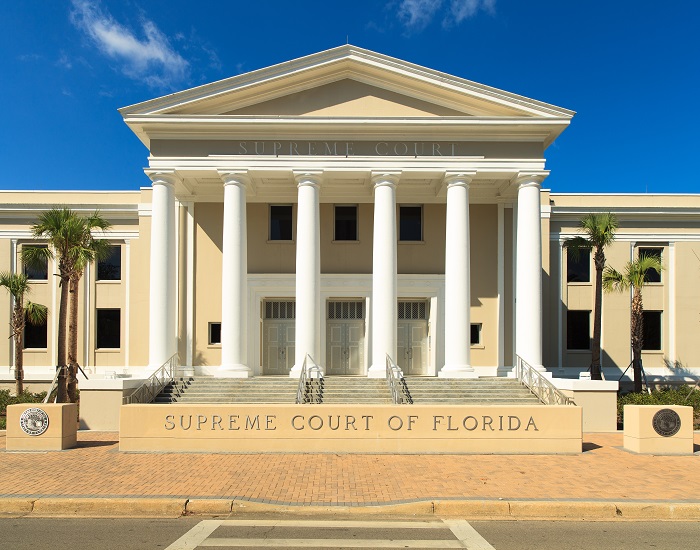
The Florida Supreme Court has been enacting rule changes that reshape the landscape of legal practice within the state. Contrary to past practices, the court is bypassing inputs from legal experts and practitioners until after decisions are made, marking a significant departure from established norms.
Increase in Unilateral Rule Changes
Since 2019, the Florida Supreme Court has issued rule changes in at least 33 opinions, a rate twice as frequent as the previous four years. These alterations cover a broad spectrum, ranging from mundane adjustments like extending bar exam time limits to more contentious issues such as terminating diversity, equity, and inclusion training for judges.
Critics Decry Lack of Consultation
This shift toward a decide-first-ask-questions-later approach has drawn criticism from various quarters. Critics argue that by sidelining the expertise of legal practitioners and committees, the court is missing out on valuable insights, potentially leading to flawed rules and increased uncertainty for the legal community, which comprises over 100,000 practitioners in Florida.
Departure from Established Norms
Traditionally, the Florida Supreme Court has relied on input from numerous volunteer lawyers serving on committees tasked with considering amendments to the state’s legal rules. However, recent trends indicate a departure from this collaborative process, with the court opting to enact changes independently.
Speed vs. Quality
While proponents of the court’s approach argue that it expedites the rulemaking process, opponents warn of potential pitfalls. Hastily enacted rules without thorough vetting could result in unintended consequences and legal ambiguities, undermining the efficacy of the legal system.
Calls for Reevaluation
Some within the legal community, including dissenting voices within the court itself, are calling for a reevaluation of this unilateral approach. Suggestions include reducing retroactive comment periods and ensuring adherence to established rulemaking procedures to maintain transparency and accountability.
Concerns for the Future
Some concern that continued disregard for input from legal experts and practitioners could erode trust in the rulemaking process and diminish the value of participating in committees. Moreover, fears persist that further resistance from the bar may prompt the court to exert even greater control over rulemaking, potentially marginalizing the role of legal professionals in shaping the state’s legal landscape.
Don’t be a silent ninja! Let us know your thoughts in the comment section below.
